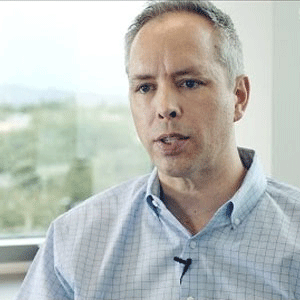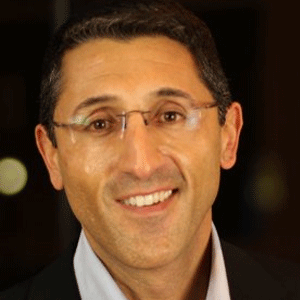THANK YOU FOR SUBSCRIBING

Developing Ethical Technological Professionals: The Critical Imperative of Education
Dr. Jenna Condie, Senior Lecturer in Digital Society at Western Sydney University, and Ms Jen Dollin, Director of Sustainability Education and Partnerships at Western Sydney University


Dr. Jenna Condie, Senior Lecturer in Digital Society at Western Sydney University, and Ms Jen Dollin, Director of Sustainability Education and Partnerships at Western Sydney University
The power of technology to shape and create new social problems and amplify existing social inequalities is now firmly in the public consciousness as governments scramble to develop legislation and big technology companies face legal scrutiny on a global stage. A notable example is when Facebook (now known as Meta) allowed the political consultancy firm Cambridge Analytica to harvest the personal data of millions of American citizens during the 2016 US election. Large social media companies are also under scrutiny for enabling political polarization, hate speech, and harmful online behaviors, which are being reinforced by biased algorithms, unsafe user designs, and ineffective reporting mechanisms and moderation systems.
Technologized inequity is a serious social issue. Somebody somewhere is always making decisions about what matters and who matters in the design and development of technologies. People are also making decisions about how technologies need to be managed, governed and applied. Decision-making is always imbued with assumptions, cultural values, beliefs, identities, social structures, and ideologies. A more diverse workforce is one way the sector can begin to address the problems it is baking into our technologizing society.
As automated decision-making infiltrates all aspects of everyday life, the Australian government developed an artificial intelligence (AI) ethics framework in 2019, which is a policy designed to ensure ethical technological innovation. Embracing the increasing complexities of socio-technological innovations and relationships will require an ethical professional workforce that understands the importance and implications of their decision-making responsibilities. The higher education sector must also respond to the urgent social issues presented by technology through its curriculum development and course offerings.
A Tech Sector Grappling with Ethics
Australia’s Digital Economic Strategy 2030 laid out a vision to be a leading digital economy and society by the end of this decade. The roadmap included a range of equity-related issues and concerns, such as enhancing digital inclusion and digital skills, ensuring cybersecurity, safety, and trust, establishing privacy and data rights, and fostering fairness and ethics within new technological innovations such as Artificial Intelligence.
The 'Australia's Digital Pulse 2021' report by Deloitte Access Economics and the Australian Computing Society forecasted that there will be over 1.1 million technology workers in Australia by 2026. The report calls for the professionalization of this growing technology sector through agreed educational practices, codes of conduct, and, most importantly, ethical standards.
As laws and legislation cannot keep pace with advances in technological development, the report argues that technology professionals must be able to make ethical decisions about the products and services they create.
Dispersed Responsibility and Accountability in the Tech Sector
The responsibility for ensuring technology makers, owners, and implementers are accountable for AI and other socio-technical creations will likely be dispersed across and beyond the technology sector to professionals in other occupations. The professionals upholding ethical conduct and accountability might be in strategic and policy-driven roles at a variety of organizations, from government to the non-profit sector and from technology startups to large multinational technology corporations. It is important that University graduates can identify the key stakeholders responsible for the technologies being made and used within society.
Socio-Technical Curriculum Innovation - The Challenge for Higher Education
In Universities, computer sciences and social sciences are usually separated as discrete disciplines within siloed faculty structures. Advancing socio-technical curriculum innovation and addressing curriculum gaps in this high-profile area requires trans-disciplinary modes of working that challenge the borders, binaries, and boundaries between these disciplines. The challenge for the higher education sector is to develop socio-technical curriculum innovation that delivers graduates who can operate within these emerging new technology spaces of employment opportunities. Professional technology leaders require the capacity to articulate the inequity of unethical products, services, and systems for particular groups and communities of people and advocate hard for socio-technical justice.
When students center equity and justice in their technology work, they can make a significant contribution to realizing a technological digital society that is genuinely striving for a fairer world
A University Committed to Sustainability, Equity, and Impact
Western Sydney University is well-positioned to lead curriculum innovation and research at the intersections of technology, equity, and society. For the second year in a row, Western has been named number one in the world for its social, economic, and environmental impact in the 2023 Times Higher Education (THE) University Impact rankings. The Impact rankings are the main global ranking system that assesses universities on their contribution and commitment to the United Nations’ 17 sustainable development goals (SDGs). Rankings are based on universities' teaching, research, outreach, and stewardship. Western topped the list for 2023 out of over 1,700 institutions from 115 countries, a first for an Australian university. The ethical and societal implications of algorithms, data, and AI (ADA) are an area of critical data studies and emerging research for Western.
Critical Digital Literacies: ‘Equitable Technologies’
Western’s new curriculum program ‘Equitable Technologies’ developed over 2021/2, invites our students to critically evaluate the impacts of technologies and reorientate technologies towards social equity. The cutting-edge minor offers a critical curriculum that identifies the ‘green washing’ that technology companies can resort to placate public and political scrutiny. The offering corresponds with the government’s AI ethics principles by centering human, societal, and environmental well-being, human-centered values, fairness, privacy protection and security, reliability and safety, transparency and explainability, contestability, and accountability. When students center equity and justice in their technology work, they can make a significant contribution to realizing a technological digital society that is genuinely striving for a fairer world.
Technologies have and will continue to shape the future of work, and a deeper understanding of the equitable impacts and implications of technologies upon people, groups, organizations, and communities will position the professional technology leaders of the future students to instigate, manage, and adapt to the social transformations brought about by technology both in their work and in their communities. This imperative for higher education has never been more critical.
Weekly Brief
I agree We use cookies on this website to enhance your user experience. By clicking any link on this page you are giving your consent for us to set cookies. More info
Read Also













